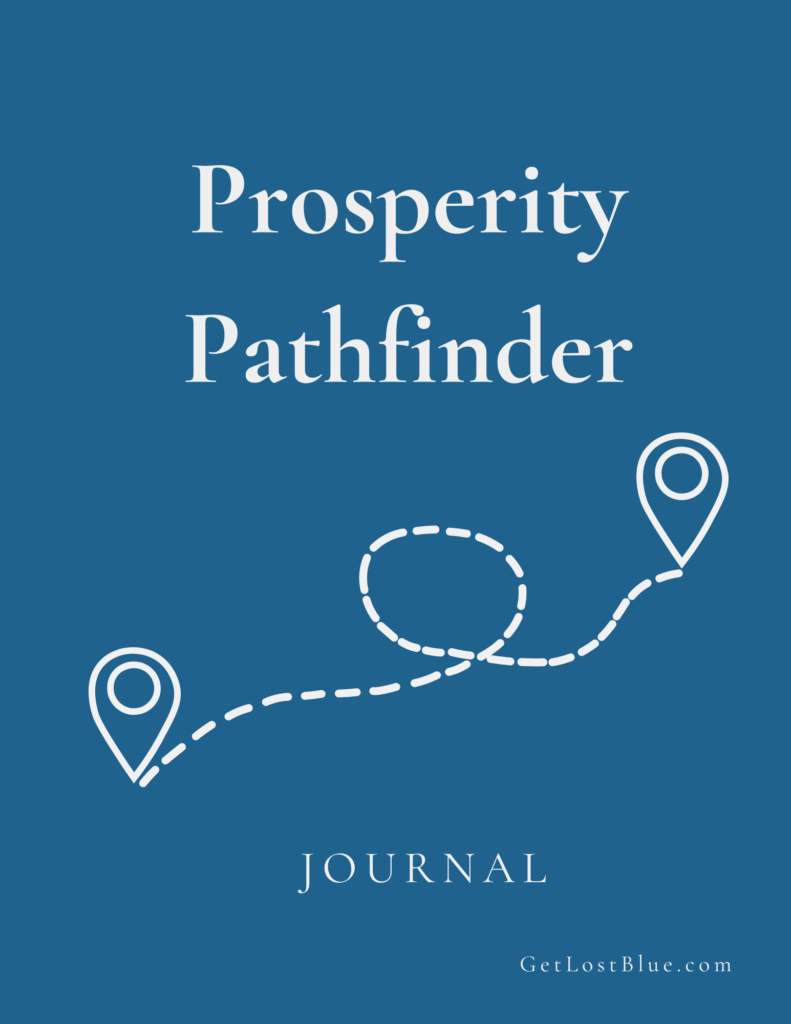Looking for a simple strategy to guide your financial choices? Here it is: Avoid getting backed into corners, actively seek options, instead.
Let me explain the strategy, how it has helped me live my dreams, and can help you, too!
What’s the Corner?
Being in a corner means finding yourself in a situation where options are severely limited or even non-existent.
How do we end up in corners? Neglecting to plan, making poor choices, and bad luck are how we end up in a corner.
Yes, sometimes we’re just unlucky, and through no fault of our own, we end up in a corner. But many corners, sadly, we back ourselves into. Avoid those!
Why Avoid the Corner?
You probably don’t need to be told why the corner sucks, but I will spell it out anyway.
- Stress, Anxiety, Depression: The corner sucks in all the negative emotions and traps them in with you. Feeling like you have no options and are stuck in a bad situation is miserable.
- Settle or Miss Out: When you’re in a corner, you’re more likely to have to accept less favorable terms or outcomes. This could mean having to take on bad debt, sell assets at a loss, or miss out on valuable opportunities.
- Poor Decision Making: When you’re stuck in a corner, you’re more likely to make rash or desperate decisions. You can end up making things worse, and start a downward spiral that makes it harder and harder from which to recover.

How To Avoid Corners and Seek Options Instead
Avoiding corners requires proactive planning, action and resilience. The following strategies can help you stay flexible and maintain options:
Plan
Planning allows you to make informed decisions and can help you see the corner before you get backed into it. If you only look one step ahead, not considering long-term consequences, you are likely to hand over control of your life to others who are better at playing the game.
If you don’t plan how to stay out of the corner, someone will surely put you there.
I started actively planning to make major changes in my life and finances about 12 years ago. My plans have changed drastically over the years, and that’s okay! That’s the point, actually, I’d say.
Planning is an active word. It’s about constantly seeking out new information, assessing options, and looking forward.
Build a Financial Cushion
An emergency fund is the foundational first step to avoid getting into a bad situation. Credit card limits and home equity, while nice to have, should not be considered your security blanket. Cash on hand is what you truly need. This will keep you from a lot of corners.
Next, you need to get to the point where you have F.U. money. What is F.U. money? Well, its enough to where you feel comfortable taking bigger risks like changing jobs if yours becomes intolerable, you want to try entrepreneurship or take a sabbatical.
Once you have F.U. money – now you have options!
At age 33, after a divorce, I was basically at a net worth of zero. It was extremely stressful, but after I was able to cobble together a couple thousand dollars in savings, I felt much better.
I did it through getting a weekend job. Being single, I had time to fill, and it got me out of my lonely house. Working to earn money on the weekend helped me not have time or temptation to spend it, as well.
After a year or so, I was able to quit the side gig. I decided to focus on trying to grow at my main job, instead. Through hard work and some luck, I was able to get a promotion and a fat raise.
I didn’t inflate my lifestyle to match my new pay level, though. Instead, I increased my savings rate, and started working on reaching F.U. status. I maxed out my 401k, Roth IRA and had left over to put into a brokerage account.
Several years later, I could see a corner coming at my job. The company was outsourcing my department and my role was about to drastically change – for the worse.
So, I leveraged my F.U. money, and quit. Since, I have been slow traveling around the US & Mexico. From zero to sabbatical in a little over a decade!
Diversify Income Streams
Relying solely on a single W2 job can back you into a corner. The job can be taken away, work conditions or your life circumstances change, making it untenable. You’re vulnerable to a new terrible boss, an illness, or a radical industry change.
If you really want to avoid ever being in a bad financial spot, look to diversify sources of income. Invest in rental properties, start a side-hustle, or just buy some dividend producing index funds.
I know, its not as easy as the internet makes it seem, but start looking for other streams to fill your income bucket.
As I was building my financial cushion, I decided to try real estate as a means to diversify my income. Along with my new partner, I purchased a triplex rental property – which I lived in for a while to accelerate my ability to save.
We put a lot of sweat and tears into the place, and it is far from totally passive income. We self manage the property, so we do everything from sink repair to tax preparation. But, now it cash flows nicely, and is a big part in why I was able to leave my job.
It also provides us with another benefit. We keep one unit as a furnished rental, so we can block off time on the calendar, and use it as our homebase when we go home to see friends and family.

Build a Flexible Financial Toolbox
Of course, the most important tool of all is financial literacy. Start with developing that one first!
Then, seek to have a well diversified set of assets, in various financial instruments. Basically, don’t have all your money tied up in one place. You need to go beyond checking and savings and make sure you are using all the tax deferred and post tax retirement accounts available to you. And have a brokerage account.
Having money in all these types of accounts can give you lots of options! So, you’ll have the best tool for whatever may arise. You can be tax efficient and nimble.
Then, make sure you have diversified assets. Own the world in low cost index funds, buy real estate, build a CD ladder, have some crypto!
Now, let’s talk leverage, the fancy word for debt. While leverage can be a good tool, over-leveraging – meaning buying stuff you can’t afford, is a great way to back yourself into a corner.
So, be a pessimist when taking on debt. Assume that you will NOT get that promotion or bonus this year. Don’t let emotions carry you, nose-first, squarely into the most uncomfortable corner ever!
I started learning the “alphabet soup” of the financial world when I first started trying to get my money in order – CD, IRA, HSA, 401k, APR, ROI. It was daunting at first. But when I saw how it was like getting cheat codes to the game of life, I became addicted. Knowledge truly is power!
Now, I have a nicely diversified portfolio, with money I can access at any time, without being overly leveraged.
Besides financial knowledge, there is another incredibly powerful tool that isn’t exactly financial – flexibility. Building flexibility into your financial life is a fantastic way to avoid sticky situations.
It can be as small as having some things identified that you can cut from your spending, if needed. Or, it can be as extreme as what my partner and I do – practice geographic arbitrage.
What is geographic arbitrage? Basically, its moving to places that your money will go farther.
For example, we can vary where we are living to keep within our budget. So, we spend 3 months in the relatively expensive US, then we balance it out with living 6 months somewhere inexpensive – like Mexico or South America. Next, we’ll be doing the same thing with Europe and Asia.
We’re only able to do this, because we downsized our lives to fit in a sedan! Rather extreme, I know.
Develop Skills for Adaptability
Don’t let yourself stagnate or get too pigeon-holed into a particular role or career. If all you can do is run a specific machine to make a single type of widget – you’re putting yourself in a corner.
If you can do your job with your eyes closed, its time to try something new! You’re probably able to do your work in half the time allotted, so use the rest to do something truly productive. Invest time learning new technologies, acquiring certifications, or exploring industries with growth potential.
The list of skills I’ve learned over the past decade that got me to where I am today are long and varied. I learned a computer language, to hang drywall, build a website, property management – none I learned in school.
Right now I’m learning how to write, so go easy on me!
Live Intentionally
Align your lifestyle with your values and goals. Make conscious choices about how you spend your time and your money. Those are the two main resources you have to manage to build the life you want.
This is easier said than done, for sure. For instance, many people say they value family, but spend all their time at work to pay for the large house they bought – because that’s what everyone else was doing.
Everyone’s wants out of life are different. And there is no recipe or roadmap. We have to muddle through and figure it out for ourselves.
So, if you don’t actively evaluate what is important to you, and act in accordance with that – you can end up years down a road that you don’t want to be on. Probably one that has put you into a corner.
After years of feeling like I was being led down other people’s paths, I started paying more attention to my day to day decisions. Life, after all, is only lived in the present, one decision at a time.
Along with my partner, after lots of reflection and experimentation, we came up with a set of questions we ask ourselves to aid in decision making. “Will it get us outdoors, will it get us being active, will it be an experience we will remember or lead to growth?”
Some days we execute better than others. But, we are clear on our values and priorities and have a system to keep iterating.
Build Strong Relationships
People are as much an asset as anything else in our lives. We have to work to acquire and maintain them. And having a well diversified portfolio of people around you might be the true definition of wealth.
So, build a supportive network of family, friends, and mentors who can offer guidance and assistance. Relationships are invaluable when it comes to avoiding corners.
Choosing a good partner is probably the most important thing you can do. The wrong choice can set you back in so many ways, not the least of which can be financial. Trust me, I’ve learned this one first hand.
So, first step is to find a few good people to have around you, whether you go “the partner” route or not. Also, minimize negative, or life sucking relationships as much as possible.
As with financial assets, don’t put all your eggs in one basket in terms of relationships, either. For example, if you luck out and find your soulmate that you can spend 24-7 with, make sure to still maintain relationships with friends. Make an effort to meet new friends from time to time, as well.
Next level relationship portfolio building is to seek out people who are different from you. People who you’re not necessarily comfortable around, or who challenge you.
Practice finding things in common with strangers, learn to see things from different perspectives and seek out other ways of living and being. This can be a super power that opens up all sorts of options in life.
Relationships were one area in my portfolio that I found I was kinda weak. Focusing on finances for so many years, I had not put in as much effort in this area as I should have. So, over the past year, since leaving my job, I decided to focus on rectifying this.
This included reaching out to someone from whom I was estranged, going to family reunions I would have previously avoided, and attending meetup groups in a foreign country.
Also…I started writing to an audience of strangers about finances! Hopefully, sharing what I know will help someone, and will be a great start to building many good relationships.
To Sum It Up
When faced with a decision, ask yourself the simple question, “Will this give me options, or will this put me in a corner?”
The road to financial freedom and the life you want is paved with choices—choose wisely, avoid corners. Embrace the boundless opportunities that await you on the path to prosperity when you actively seek out options.
How about you? What are you doing to seek options? Are you in a corner right now? If so, what’s one thing you can do today to start finding your way out of it?
Live a Life You Love
Tired of feeling stuck? Let’s create your escape plan. Schedule your free session today.
Or, get my Prosperity Pathfinder Journal – FREE.
Filled with inspirational quotes, thought provoking questions, and a habit tracker – it’s a great companion on your way to a truly prosperous life.



Leave a Reply